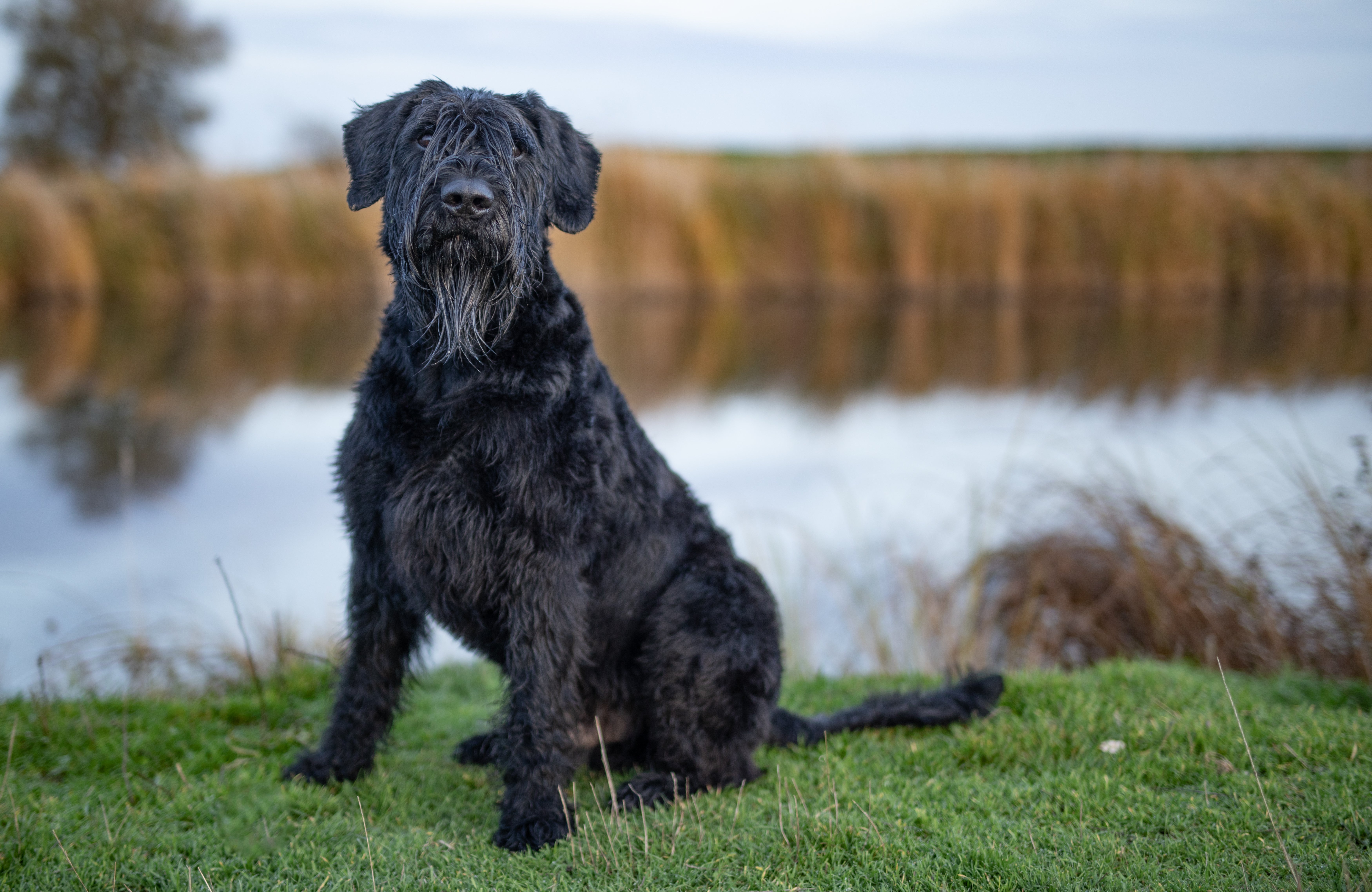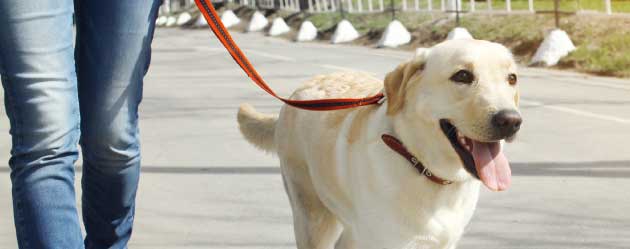Giant Schnauzer
The biggest Schnauzer, the Giant Schnauzer, was intentionally bred to guard livestock. They have strong, compact, and nearly square bodies which exude power and agility. They have a tough, up-for-anything coat that allows them to withstand harsh alpine weather and inquisitive eyes. Their distinctive eyebrows and beard give them the appearance of being wise beyond their years.
Breed characteristics carousel
Learn More
Need to Know
- Dogs suitable for experienced owners
- Extra training required
- Generally healthy breed
- Enjoys vigorous walks
- Giant dog
- Some drool
- Requires grooming every other day
- Chatty and vocal dog
- Barks, alerts, and may be physically protective/suspicious of visitors
- Might not like other dogs
- May need additional training to live with other pets
- May need additional supervision to live with children
- Needs a large yard, in suburban or rural areas
- Can be left alone occasionally with training
- AKC Registered Breed

Personality
Rambunctious and playful, Giant Schnauzers are guard dogs by nature. They can be loud and chatty, which might not fit with a family with small children. Otherwise, they are devoted and loyal to their families and reserved with strangers, potentially even being assertive with other dogs. Intelligent, bouncy, and seemingly with never-ending energy, they make ideal companions for owners who can give them jobs to do, take them on outdoor adventures, and let them be leaders when they want to.
The Giant Schnauzer is a German dog that originated in the countryside of Bavaria and Wurrtemberg. Cattle farmers sought to bring the Standard Schnauzer up one level to a larger scale, perfect for driving cattle. They were likely crossed with Standard Schnauzers, rough-coated Sheepdogs Wolf Spitz, black Poodles, Wirehaired Pinschers, and even Great Danes and Bouvier des Flandres to get the right size.
The resulting dog is a Barbour jacket in canine form—weather tolerant, hearty, smart-looking, and prepared to handle cattle. The dogs became popular as guards for butchers and stockyards, keeping a low profile until World War I when it was suggested they would make ideal police dogs.
Calm, sensible, competent, and strong—the Giant Schnauzer needs these qualities in spades to keep up with the dog. Reward-based training is motivating to them, so an inclination to be patient with them and practice training is needed. They adore dog sports, so an ideal owner would want to devote an appropriate amount of time to these pursuits.
Vigorous walks or free running will keep a Giant Schnauzer occupied properly. Add in training and games and these athletic dogs are happy. Know that they don’t care one bit if it’s raining or windy outside—when it’s time to go explore, it’s time to go no matter the weather.
Dirt, debris, water, and muck can easily get stuck in the Giant Schnauzer’s coat, and many owners find it ideal to have a large, dedicated space to look them over and bathe them. They are large dogs, and while they can stretch out inside, they prefer to romp around a large, fenced-in yard. They can be opinionated and loud, so it’s best to have a space away from other neighbors. They can get overstimulated and stressed by the noise of city life. The suburbs or countryside is best for them.
These large distinguished gentlemen (and gentlewomen) have beards that can gather water and debris from food and the floor. Cleaning their beards daily can help reduce the possibility of infections and pongs. Check their coats daily and brush them two to three times a week. You might have to hand strip every three months to remove dead hair or get your Giant Schnauzer professionally groomed.
Socialization and training are essential to keep the Giant Schnauzer relaxed and happy around people and other dogs. They have guarding instincts and can react to unfamiliar sights and sounds.
These gentle giants are very much still working guard dogs. This makes them best suited for families with older children or no children. As puppies and adolescents, Giant Schnauzers can be boisterous and nip. When combined with their size, it’s not ideal for small children. They also require a lot of exercise, so it’s not the best fit for a busy family life.
The cost of a Giant Schnauzer from a breeder is significantly more than the cost of adopting one from a local shelter or rescue. The adoption fee usually covers additional items such as spaying or neutering, vaccines, and microchipping.

Learn more about feeding and caring for your Giant Schnauzer on Purina.
Did You Know?
- The name Schnauzer comes from the German word for “snout,” or slang for “mustache.”


